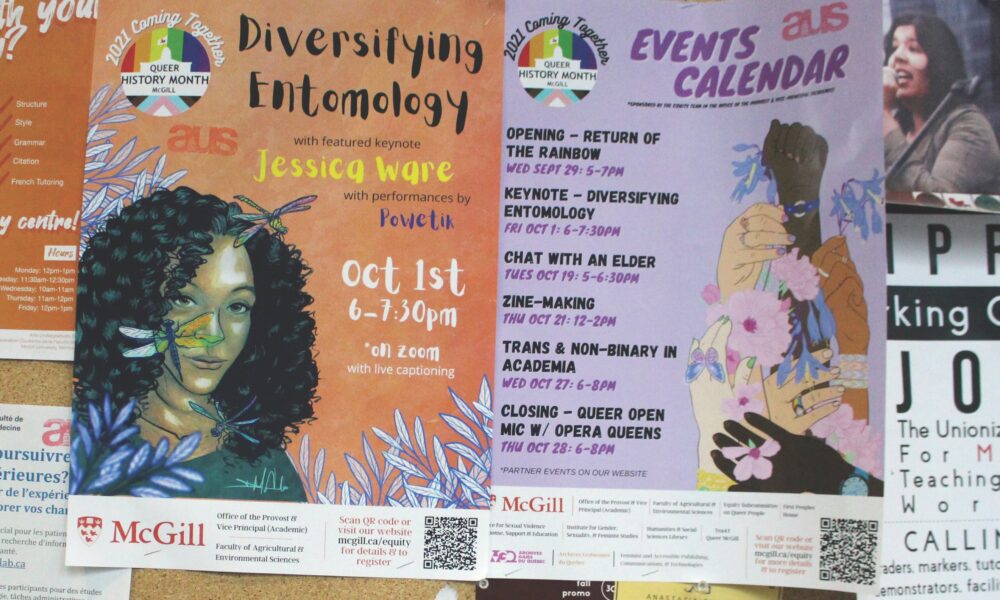Throughout October, McGill is holding a series of events in honour of Queer History Month, ranging from public talks to workshops, centred around the theme, “Coming Together.” The month opened with a homecoming event called “Return of the Rainbow,” which featured Kanien’kehá:ka Elder Kawennotas Sedalia. The event brought together former and current McGill queer community members, including staff, students, and faculty, to foster connections through relationship-building activities and to provide a safe space to share personal stories.
McGill’s Equity Education Advisor (Gender Equity and 2SLGBTQIA+ Education), Andrea Clegg, shared the meaning behind this year’s theme in an interview with The McGill Tribune.
“The theme ‘Coming Together’ is connected to the opening up of communities, including the McGill campus, in relation to the pandemic,” Clegg said. “[It is about] having a renewed opportunity to come together and celebrate and affirm our identities, something […] that varied communities have been impacted by in terms of the COVID pandemic.”
Honouring Queer History Month at McGill is important, explained Clegg, in that it provides space for celebrating members of the 2SLGBTQIA+ community and also includes a commitment to work toward further equality at the university.
“[Queer History Month at McGill] is an opportunity to come together, connect, celebrate our achievements, and identify ways we still need to continue to move forward on issues,” Clegg said.
While the month is primarily organized by the Office of the Provost and vice-principal (Academic) (OPVPA), they partner with many other groups to organize a wide range of events. One such group is McGill’s Subcommittee on Queer People (SQP), which submitted a formal motion to the McGill Senate in May 2021 for Queer History Month to be held and hosted the Return of the Rainbow event. Hiba Zafran, chair of the SQP, underscored the importance of adopting an intersectional approach in an email to The McGill Tribune.
“Equity and accountability are only possible when we both resist white supremacy and coloniality, and queer-ify, amplify and rebuild our ways of doing—together,” Zafran wrote. “It is our collective responsibility to promote the wisdom of, and leadership by, those of us with experiential knowledge. Queer History Month is one of the spaces where we can come together to envision such a politics and ethics for belonging.”
A handful of student-run groups helped organize Queer History Month as well. Queer McGill, a SSMU support service and the oldest queer organization on campus, hosted a documentary screening on Oct. 13 as part of the month’s programming. Jordan Elbualy, U4 Arts and an event coordinator for Queer McGill, spoke to the Tribune ahead of the screening and expressed his appreciation for the month’s events.
“I think [Queer History Month] shows that the administration cares about us a little bit,” Elbualy said. “I like it. It kind of takes the pressure off of Queer McGill’s shoulders not being the only Queer advocacy agency at McGill [and the Queer History Month organizers] do some really good work.”
For more information on Queer History Month and the events being held, visit the official page.
Queer students looking for support can visit Queer McGill’s Facebook.









